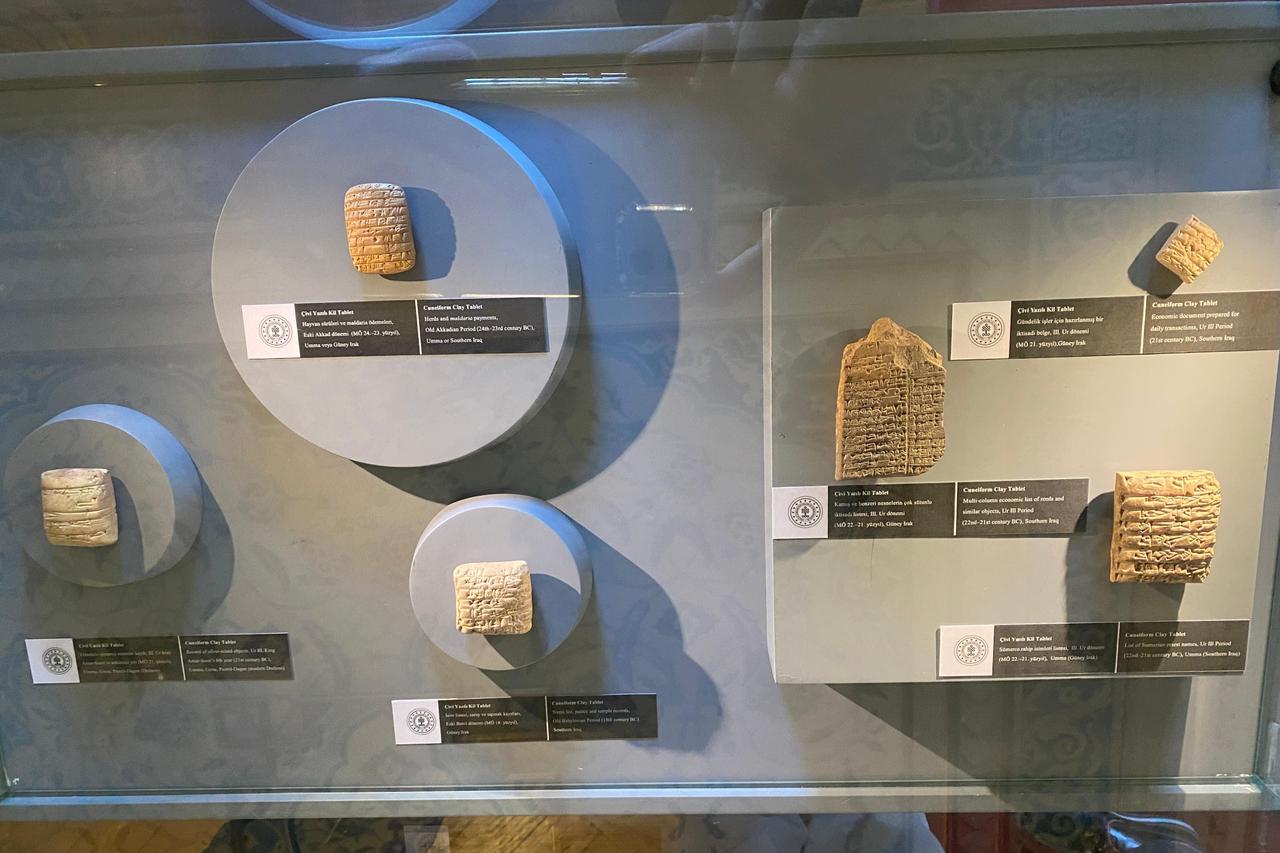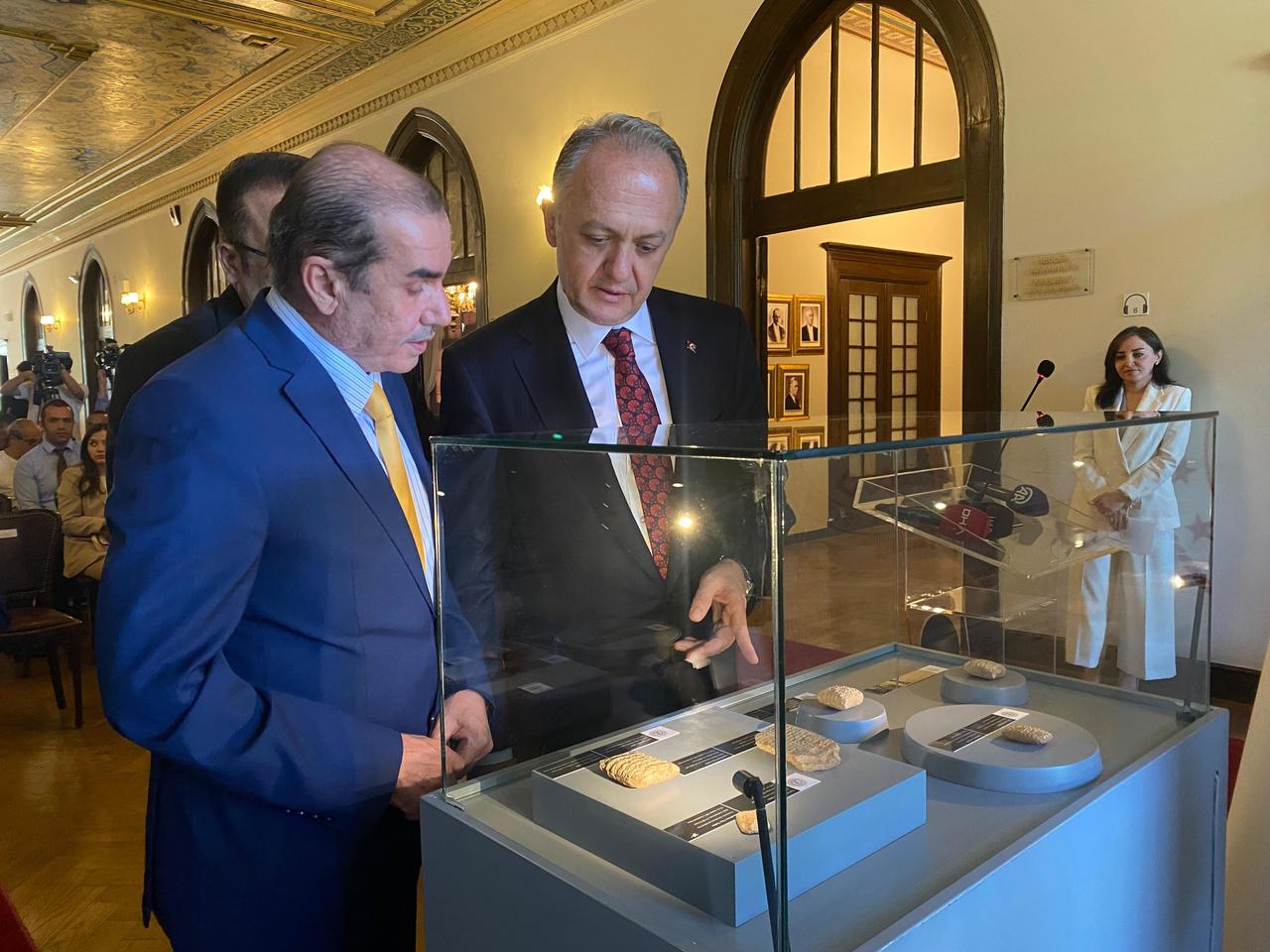
In a formal handover ceremony held at Ankara’s Republic Museum, Türkiye returned six ancient cuneiform tablets to Iraq, underscoring its dedication to the protection of cultural heritage and international cooperation against antiquities trafficking.
The artifacts, which date back to the periods of the Akkadian Empire, the third Dynasty of Ur, and the Old Babylonian period, had been voluntarily surrendered by a private citizen in Türkiye and confirmed to be of Iraqi origin through scientific analysis.
The transfer ceremony was attended by Türkiye’s Deputy Minister of Culture and Tourism Gokhan Yazgi, and Iraq’s Ambassador to Ankara Majid Abdulreda Hassan Al-Lachmawi. Speaking at the event, Yazgi emphasized that Türkiye applies the same sensitivity to the cultural assets of other nations as it does to its own. He stated that the tablets had been confirmed as originating from Iraq through academic evaluations and shared documentation with Iraqi authorities via the Turkish Foreign Ministry.
Yazgi noted that the tablets provide a window into ancient life, covering a wide range of topics from routine transactions to religious functions and the inventory of valuable items. “These tablets are unique documents in terms of both scientific and cultural value,” he said.

The six artifacts were studied by archaeologists at the Istanbul Archaeology Museum and assessed by Professor Selim Ferruh Adali, who dated them to between the 24th and 18th centuries B.C. One tablet, from the third Dynasty of Ur, written in Sumerian script, records a list of priests, suggesting a connection with ancient southern Iraqi cities such as Umma. Another from the Akkadian period documents types of sheep and goats along with payments made for them, indicating its use as an economic record.
A third tablet, prepared during the reign of King Ibbi-Sin in the 21st century B.C., relates to routine administrative matters typical of the Ur period. The content, terminology, and style of the texts align closely with known practices in ancient southern Mesopotamia.
Türkiye’s actions fall in line with international conventions and resolutions, particularly the 1970 UNESCO Convention and U.N. Security Council Resolutions 1483 and 2199, which call for firm measures against the illicit movement of cultural properties. Yazgi underlined that the fight against illegal trafficking in antiquities depends on both national regulations and international cooperation, describing the tablet return not merely as a goodwill gesture but as a reflection of legal and ethical commitment.
Since 2010, Türkiye has returned a total of 97 cultural items to Iraq, including four in 2010, 81 in 2019, six in 2022, and now six more in 2025.
Ambassador Lachmawi expressed gratitude to Türkiye for its ongoing support in recovering Iraq’s cultural assets. He noted that this latest act of restitution demonstrates not only respect for Iraq’s historical heritage but also the deepening of bilateral ties based on mutual respect and friendship.
“This return is not just a contribution to Iraq’s cultural legacy but a sign of the spirit of friendship and mutual respect that continues to develop between our two nations,” he said.
Lachmawi also reiterated Iraq’s eagerness to continue collaborating with Türkiye in areas of shared interest, including the protection and recovery of cultural heritage.